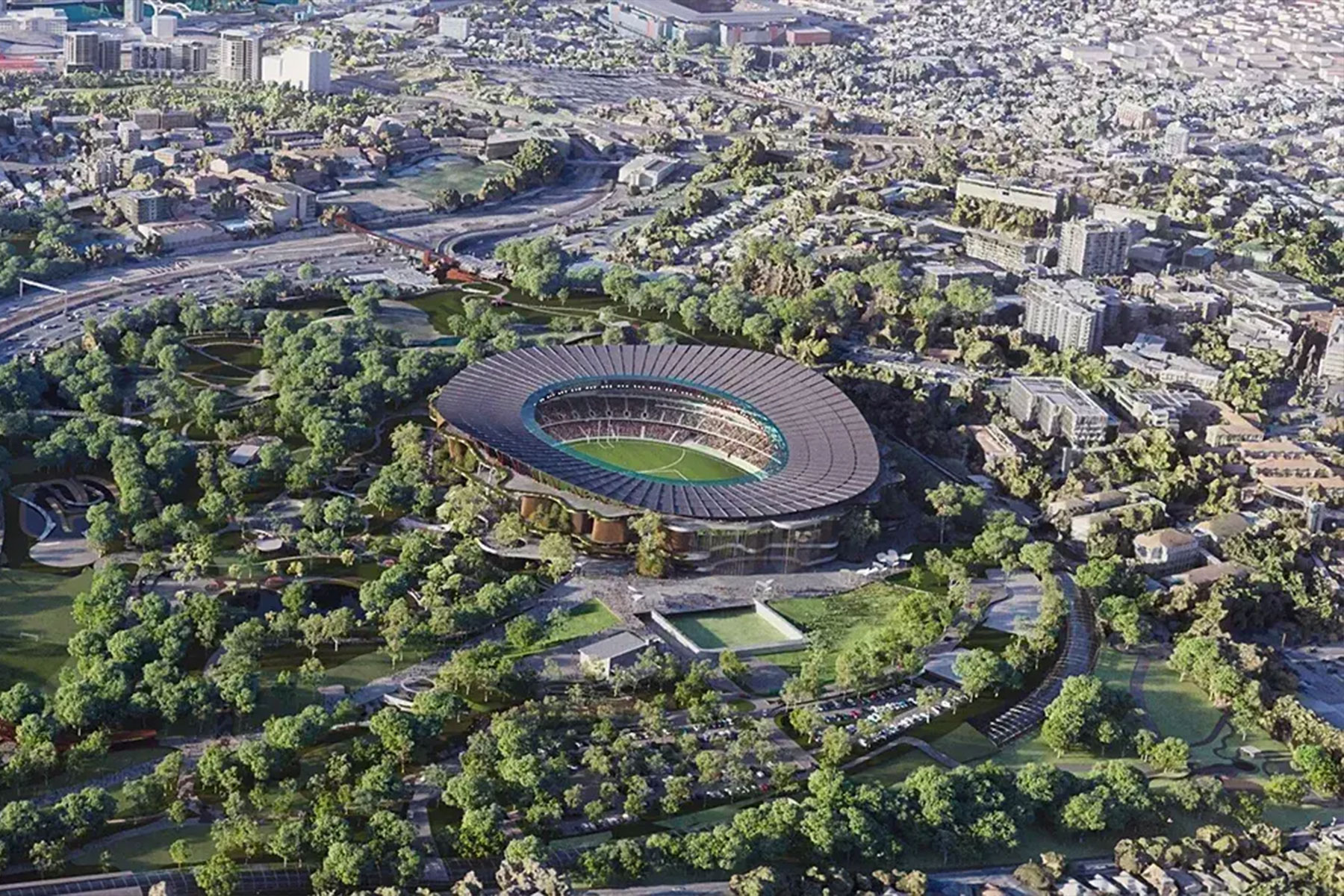Slow start fears in race to build 2032 Olympic venues
The clock is ticking for the 2032 Olympics with a report claiming Brisbane Games projects may not be delivered on time by an ailing construction industry.

Time is running out to build 2032 Olympic venues with the construction industry in decline.
A damning report claims a bold Brisbane Games blueprint might not be completed in time because of a productivity drop that could have cost Queensland almost 80,000 new homes.
But Queensland Treasurer David Janetzki was unfazed on Thursday, saying the state government was up to the 2032 Games challenge.
A week after the seven-year Olympic countdown was celebrated with much fanfare, the Queensland Productivity Commission’s interim report delivered a sobering warning.
State productivity had declined by nine per cent since 2018 and best-practice industry conditions on sites were adding to the cost of major projects, delaying builds.
“If Queensland is to meet the needs of its growing population, match infrastructure commitments and deliver the 2032 Olympic and Paralympic Games, productivity across the industry will need to improve,” the report said.
The Australian Constructors Association urged the state government to respond, saying it must get the tender process right for Olympic venues with the 2032 clock ticking.
You might like
“That is certainly something we continue to see problems with, delivery agencies thinking the best route is to get the lowest price at the tender box and transfer as much risk as possible onto the contractor,” CEO Jon Davies told AAP.
“There is no way that the Games are going to be delivered on time, even on budget, taking that approach.”

He said the government should also better address how projects come to market after a “Hunger Games” of agencies competing against each other in the past.
But Davies hoped the government could provide a blueprint for other states to follow for major events.
The state government fired the starting gun for 2032 venue construction by finally confirming its plan in March, more than 1300 days after Brisbane was named host.
Janetzki was confident Brisbane would be ready for the Games.
“It’s an exciting time that we stand on the cusp of this generational legacy of transformative infrastructure for the Olympics,” he told reporters on Thursday.
Stay informed, daily
“This report is key to helping us finding a way through to that productivity increases that we need – it’s a task that we’re up to.”
Queensland’s productivity growth compared to the broader state economy and Australia had been weak over the past three decades, the report said.
Surging construction prices, rising insolvencies, constraints on labour supply and materials had all contributed to industry pressures following the COVID-19 pandemic.
Current labour productivity in the construction sector was only five per cent higher than in 1994/95, compared to 65 per cent growth in the market economy over the same period.
The almost 10 per cent drop in productivity over seven years had resulted in 77,000 fewer homes being built, the report said.
It warned maintaining best-practice industry conditions until 2029/30 could cost $20.6 billion, increasing project costs by up to 25 per cent and result in 26,500 fewer homes.
Recommendations from the interim report include changes to procurement and the permanent removal of best-practice conditions.
Janetzki said the report findings validated a government decision to pause best-practice conditions in late 2024.
The government has budgeted $116.8 billion over the next four years towards its capital program, with construction for major Olympic venues set to begin in 2026.
The commission’s final report is due on October 24.
-with AAP





